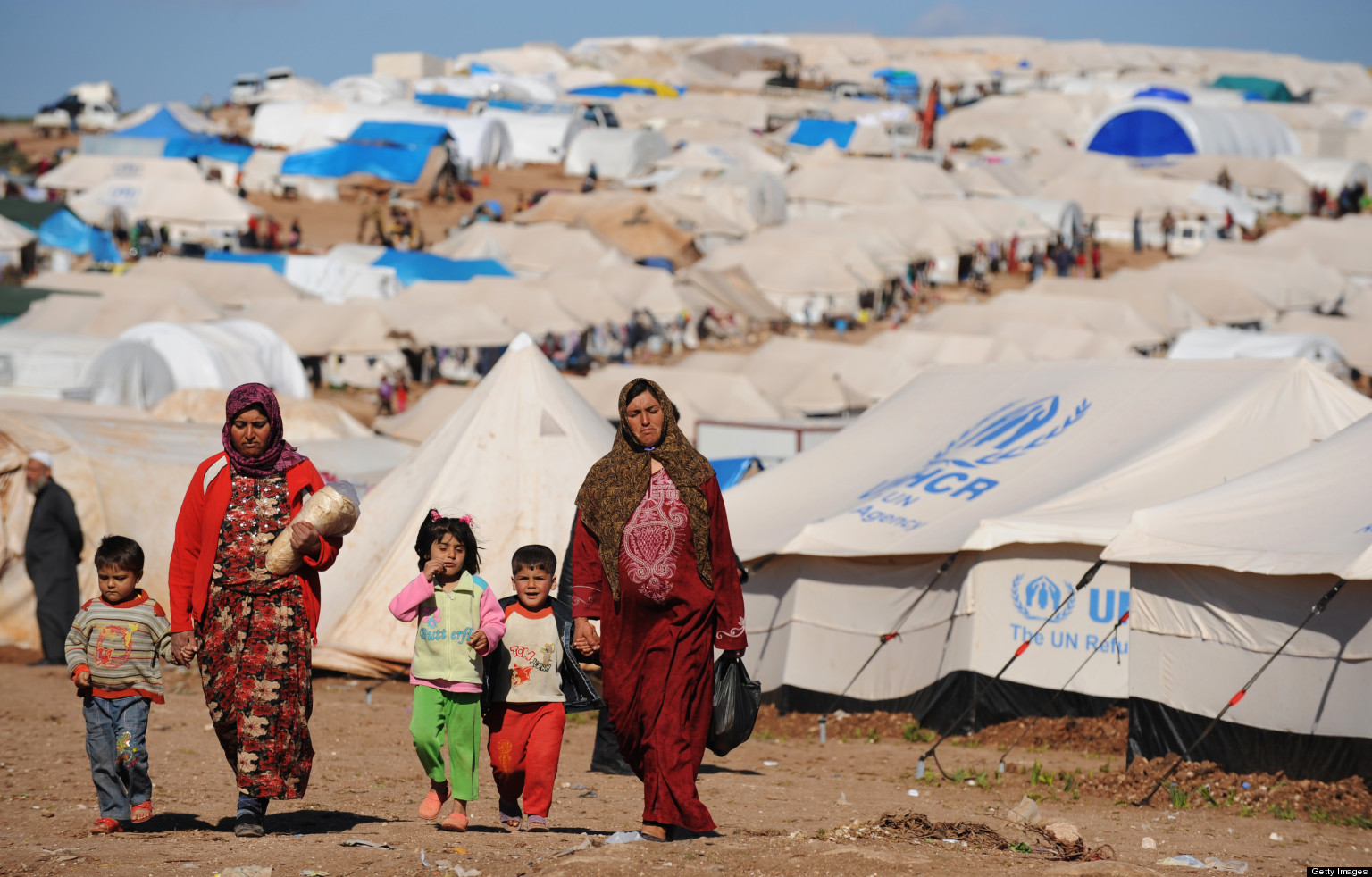Europe’s Refugees Press On

Since 2011, violence has shaken Syria. As the nation has descended further and further into a bloody civil war, it has seen over 240,000 of its citizens killed and almost half of its population has fled their homes. Many of those who have rushed to escape conflict are now refugees who are seeking asylum in European nations. In recent weeks this refugee crisis has entered the spotlight, as thousands of asylum seekers have reached further and further into Europe.
Last week, the number of migrants seeking to board trains in Budapest, Hungary rose from 800 each day to 2,000 per day. This influx prompted Hungarian officials to cut off the refugees’ access to the station, and halt their passage to western European cities. The migrants proved undeterable, and last Friday more then 1,000 refugees began to walk the 150 miles from Budapest to Vienna, Austria. Local authorities and those throughout Europe have been forced to react to the growing number of Syrians who are making this journey. Over the weekend Hungarian authorities began busing migrants from their walking route to the Austrian border. By Monday morning, roughly 20,000 migrants had travelled from Hungary to Austria and Germany in the past four days. As groups of migrants arrive in Austria and Germany they have begun to fan out across Europe. Meanwhile, thousands of asylum seekers have continued to follow this route from the Middle East to Europe’s urban centers each day.
Syrian migrants are now entering the European Union’s open-border zone at an unprecedented rate. Politicians and aid organizations throughout the continent are strategizing on how to accommodate the thousands of refugees who are arriving. The United Nations High Commissioner on Refugees has encouraged the EU to accept more then 200,000 migrants as part of its overall relocation program. Some nations have already headed this directive. On Monday, the United Kingdom announced that it would accept 20,000 refugees over the next five years. Similarly, France has offered to welcome 24,000 refugees. However, not all nations have been so accepting. Hungary is currently building a 13 foot barbwire fence along its eastern border to discourage more migrants. Meanwhile, Spain is working diligently to confine refugees to detention centers. Spanish police in Valencia shot rubber bullets at roughly 50 migrants as they attempted to leave a detention center on Monday.
Germany, which has accepted the most migrants in Western Europe, has greeted the flow of refugees with open arms. Along train platforms and at bus depots Germans have cheered for arriving refugees, while passing out food, clothing and gifts. “In Hamburg, which hasn’t even seen a large amount of refugees, there is an entire warehouse filled with donations for the incoming migrants,” said Nils Tangemann ‘17, a native of Hamburg. German officials are expecting 800,000 asylum requests this year, and German citizens appear to be accepting this challenge. “There is even a website called ‘Take Home a Refugee’ which connects the refugees to families who are willing to house them,” Tangemann added. “People do come together to help.”
This groundswell of support has been surprising to some Europeans, after decades of xenophobic rhetoric has been supported by Europe’s most far-right politicians. In recent years,political parties, like France’s Front National and the Danish People’s Party, have worked to bar immigrants from their nations has prevent newcomers from assimilating. “I feared that this influx would spur more far-right groups into action,” noted Tangemann. “However, of the social media posts I have seen from other German students, it seems like 90% of them have been positive and in support of the refugees,” he said. “I think decency has won.”
Now that Europe is taking steps to allow more refugees to cross its borders, it faces the issue of determining what their future will hold. “If we can help the refugees learn German and give them jobs, they will disperse and assimilate into our country,” said Tangemann. “It would be a huge mistake to bring all the refugees into a refugee camp and then forget about them. There has to be open dialogue that includes, not alienates refugees and gives them the right to things like health care, education, and eventually permanent residency.” Germany has a robust public education system that ranks as one of the top 20 in the world. “There are calls for German universities to open their doors to these Syrian students and give them an education so they can succeed,” stated Tangemann. “People are willing to help them assimilate. Now the government must remove the barriers that are getting in the way.”


